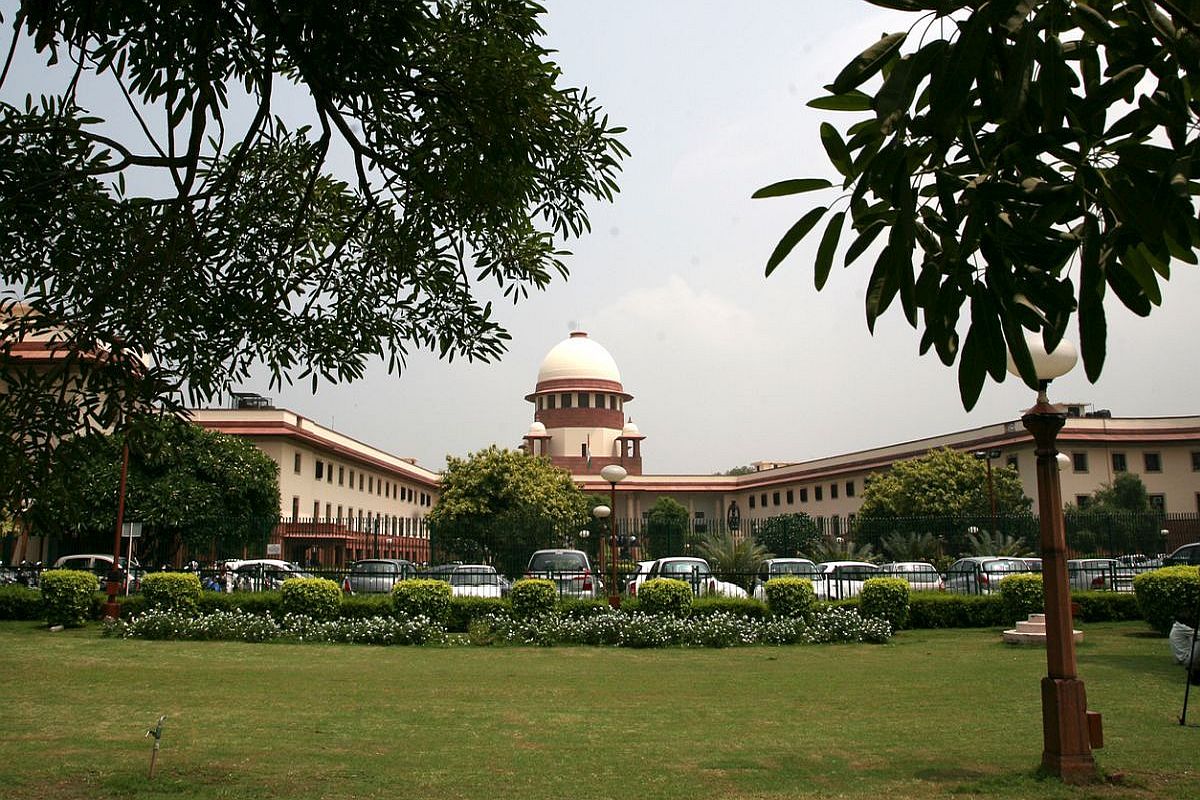SC to pass directions on pleas seeking mandatory EVM-VVPAT tally
As per the causelist published on the website of the apex court, the issue is listed before a bench of Justices Sanjiv Khanna and Dipankar Datta “for directions” on April 24.
According to the new law, members of Hindu, Sikh, Buddhist, Jain, Parsi and Christian communities, who have come from Pakistan, Bangladesh and Afghanistan, till December 31, 2014, facing religious persecution there, will not be treated as illegal immigrants but given Indian citizenship.

Supreme Court (Photo: Getty Images)
Amid nationwide protests against the Citizenship Amendment Act (CAA), the Supreme Court is hearing over 140 petitions challenging and supporting the law.
A three-judge bench led by Chief Justice SA Bobde comprising Justices S Abdul Nazeer and Sanjiv Khanna is hearing the petitions, most of which are challenging the constitutional validity of the controversial law.
The petitioners who have challenged the CAA are Indian Union Muslim League, Congress leader Jairam Ramesh, RJD leader Manoj Jha, Trinamool Congress MP Mahua Moitra, AIMIM leader Asaduddin Owaisi, Jamiat Ulama-i-Hind, All Assam Students Union (AASU), Peace Party, SFI, & CPI among others.
Advertisement
Earlier on December 18, 2019, the apex court bench of Chief Justice SA Bobde, Justice BR Gavai and Justice Surya Kant had refused to stay the Citizenship Act and issued a notice to the Government on a batch of pleas challenging the law.
Protests have erupted across the nation with violence and arson emerging from different parts of Delhi, West Bengal, Uttar Pradesh and the northeastern states of Assam, Tripura and Manipur.
The campus protests have gained massive support across the nation after Delhi Police tear-gassed students of Jamia Millia Islamia University on Sunday night without any permission from the campus authorities.
Several other violent protests have been across the nation against the contentious law.
According to the new law, members of Hindu, Sikh, Buddhist, Jain, Parsi and Christian communities, who have come from Pakistan, Bangladesh and Afghanistan, till December 31, 2014, facing religious persecution there, will not be treated as illegal immigrants but given Indian citizenship.
The opposition parties have termed the legislation as “unconstitutional” which “is aimed at diverting attention from the burning issues of the common people”.
On January 9, the top court had refused to entertain a plea that the citizenship law be declared constitutional, saying the country is “going through difficult times” and the endeavour now should be for peace”.
A lawyer had filed a plea defending the constitutionality of CAA and seeking action against activists, students, media houses spreading “false rumours” about the Act.
On this, CJI Bobde said that “during such difficult times, the endeavour should be for peace” and added that such pleas don’t help.
Advertisement